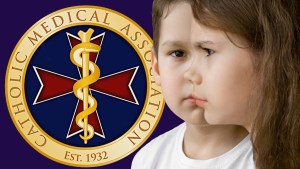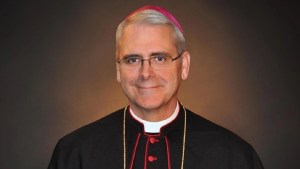Help Aleteia continue its mission by making a tax-deductible donation. In this way, Aleteia's future will be yours as well.
*Your donation is tax deductible!
The Diocese of Cleveland in Ohio is the latest Catholic diocese in the US to issue guidelines concerning sexuality and gender issues in its schools and parishes.
Bishop Edward C. Malesic issued the guidelines August 30, in time for the new school year.
“We are experiencing a polarizing and tense time in our culture. Many feel lost and troubled about who they are and their purpose in the world,”Bishop Malesic said in a cover letter accompanying the guidelines. “This search for life’s meaning and purpose touches the core of who we are as human beings.”
The bishop said that “in recent times, there is an awareness that, within our parishes and schools, some of our brothers and sisters in Christ experience challenges with their sexuality and confusion with their gender.”
“The Church teaches that sexual identity is ‘a reality deeply inscribed in man and woman,’” he wrote, quoting the Congregation for the Doctrine of the Faith. “One’s maleness or femaleness is pivotal to how one sees himself or herself and lives his or her life.”
Support team
Along with the guidelines, Bishop Malesic formed a team of individuals to be available to parish and school personnel who have background and understanding in the theological, moral, legal, pastoral and educational facets of sexuality and gender issues.
The guidelines emphasize that persons experiencing gender dysphoria or confusion will not be denied admission to a Church institution or be excluded from an institution’s life and activities. But persons who choose to openly express disagreement with Church teaching on matters of sex, sexuality, and/or gender in an inappropriate or scandalous way, or who act in ways contrary to the teachings of the Church, may be subject to restrictions on his or her participation in the life of the institution “or, in appropriate cases, to disciplinary action, both for that person’s own good and the good of others.”
Specific provisions of the policy include:
- Parental notification. If a teacher or staff member at a Church institution becomes aware that a minor is experiencing gender dysphoria, parents shall be notified.
- Pronouns. Only pronouns “that accurately reflect a person’s God-given biological sex” shall be used.
- Bathrooms. Use of restroom facilities must be according to one’s “God-given biological sex.”
- Single-sex institutions, programs, and activities. A person may only be admitted to an institution that is designated as a single-sex consistent with his or her God-given biological sex.” The same goes for sports.
- Parish or school dances. No person may attend a dance or similar event with a date of the same God-given biological sex.
- Conduct. No person may publicly advocate or celebrate sexual orientation or identity in ways that are contrary to the Church’s teachings.
- Sex/Gender Transition. No person may engage in so-called social transitions, surgeries, or medical treatments that seek to transition the person to a sex or gender inconsistent with his or her God-given biological sex.
A growing number of dioceses in the US have published such policies over the past year or so, including the Archdioceses of Portland, Oregon; Omaha, Nebraska; Denver, Colorado; and the Dioceses of Worcester, Massachusetts.
The Diocese of Cleveland said it issued its guidelines “in response to societal trends and at the request of church and school leadership.” It said that Catholic institutions “must accompany people experiencing gender dysphoria and be committed both to providing a loving environment and to upholding the truth of God’s created reality.”




